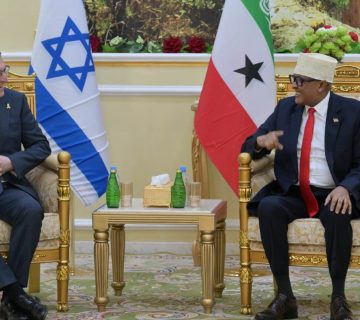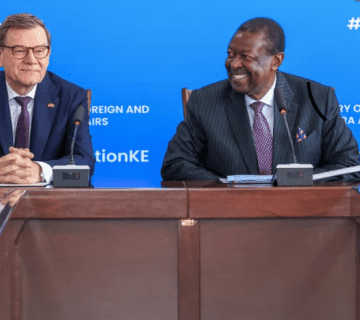The African Continental Free Trade Area (AfCFTA) signed on March 21, 2018 brings together 1.2 billion people and a GDP of about USD 3.4 trillion according to African Union. It is the largest free trade area since the World Trade Organization. It could boost intra-Africa trade as the agreement eliminates tariffs on 90 per cent of goods with the future possibility of scrapping tariffs on 10per cent of sensitive goods. More non-tariff barriers will also be addressed through negotiations. Intra-Africa trade is therefore estimated to grow by 52 per cent by 2022 according to the United Nations Economic Commission for Africa. However, the current intra-Africa trade is about 10.2 per cent as estimated by UNCTAD compared to regions such as Asia where intra-regional trade stands at 25 per cent. WTO had in 2015 estimated intra-Africa exports at 18 per cent, intra-Asian exports at 52 per cent, intra-North American exports at 50 per cent and intra-Europe exports at 70 per cent. Africa’s share of world trade stands at three per cent. Clearly, Africa lags behind in many economic and trade respects compared to other world regions due, in part, to delayed integration.
However, with AfCFTA, member countries are looking at growth prospects not only in trade but also in other socio-economic aspects. The four freedoms of movement of goods, services, people and capital will be the key triggers of growth. This liberalization will create access to a larger market for African products and services thereby encouraging trade and investment. Increased trade and investment will then reduce unemployment of 29.3 per cent in North Africa and 10.8 per cent in Sub-Saharan Africa. Consumers will also enjoy a wider variety of quality products and services at competitively lower prices.
As Africa joins Global Value Chains through AfCFTA, her economies need to diversify through investment in research, training and technology, and encouragement of direct investment. Industrialization will boost the productive capacities of African economies in the era of free trade under the export-led structural model. This will lead to the expansion of Africa’s manufacturing industry which accounts for only two per cent of the world’s manufacturing. Industrialization (or manufacturing) will also increase Africa’s share of global GDP and trade, as well as Africa’s leverage in the global economy.
However, some realities may dampen economic aspirations of AfCFTA and this is perhaps why Nigerian President, Muhammadu Buhari, did not sign the deal to allow for wider consultations despite Nigeria being one of the largest African economies. Removal of tariffs will create a loss of USD 4.1 billion in revenue for the implementing countries in the short run according to UNCTAD. AfCFTA will, however, create high international competition as African economies venture to exploit their comparative advantages. Bigger African economies, therefore, stand to benefit more than smaller ones due to the relative productive capacities of their economies. Yet, international competition may also expose small and weak companies to foreign giant companies due to deregulation or reduced protectionism.
Liberalization of domestic labor markets will also expose nationals to competition from foreign cheap labor. Capital mobility being high may also encourage out-sourcing leading to loss of jobs. The free trade arrangement may also encourage the “race to the bottom” leading to unsustainable development models, and undercutting of Agenda 2030 anchored on Sustainable Development Goals.
Signatories to AfCFTA need to proceed with caution in its implementation. Scheduled special and differential treatment should be considered for smaller African economies to allow them to do gradual incremental deregulation and to adjust structurally. Fair negotiations on harmonization of investment policies, competition, transparency of government procurement and trade facilitation should be done in the earnest as well as negotiations on intellectual property rights. Security concerns and nationalist fears need to be addressed. They may have influenced the smaller participation of just 29 countries in signing agreements on free movement of people and the right to live and establish businesses anywhere.
Nevertheless, Africa is on the verge of a new dawn. The greatest responsibility is on Africa’s leadership to achieve Agenda 2063 – vision and action plan for synergetic cooperation in Africa towards shared prosperity and integration based on shared values and common destiny – which is gaining momentum. More or all African countries should come on board to engage in progressive, fair and realistic negotiations of AfCFTA and commit to obligations thereof for growth and prosperity.



